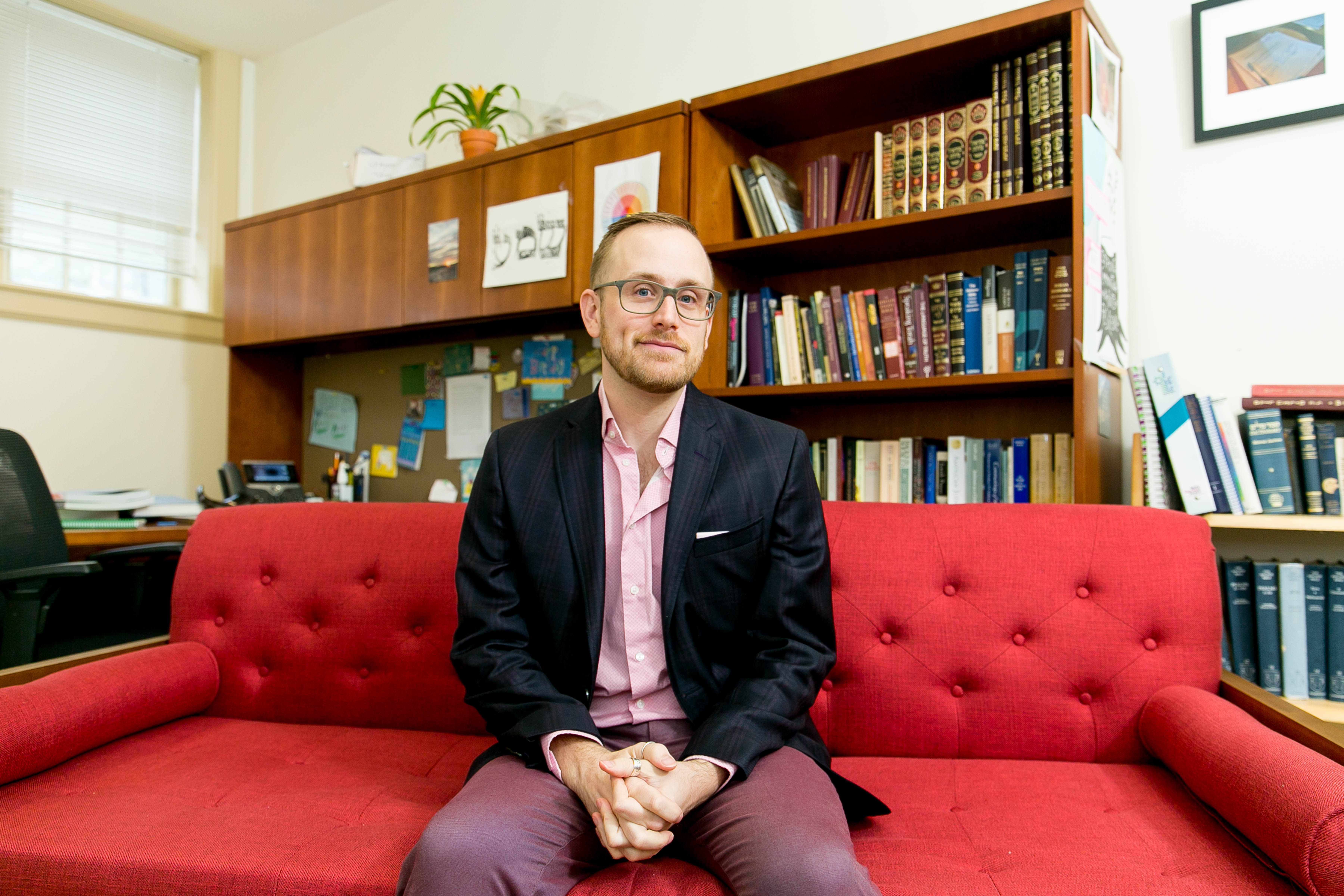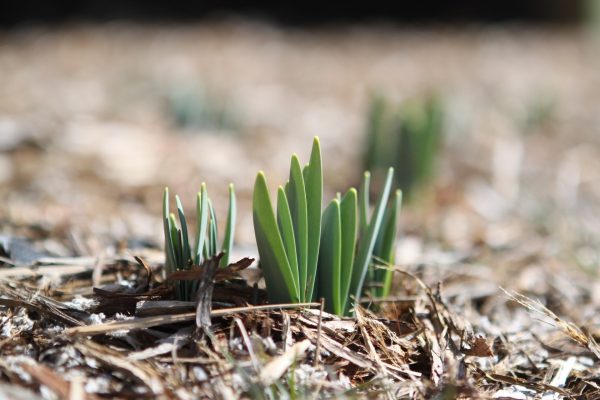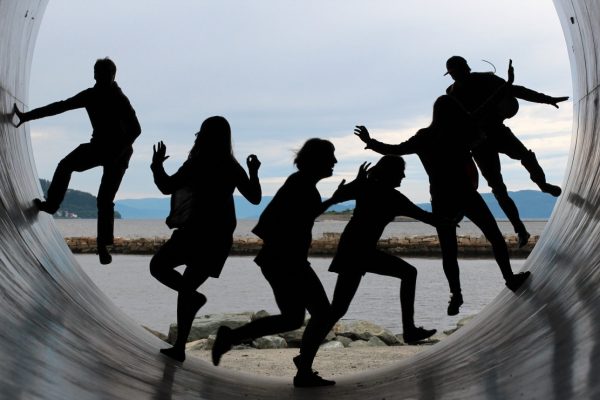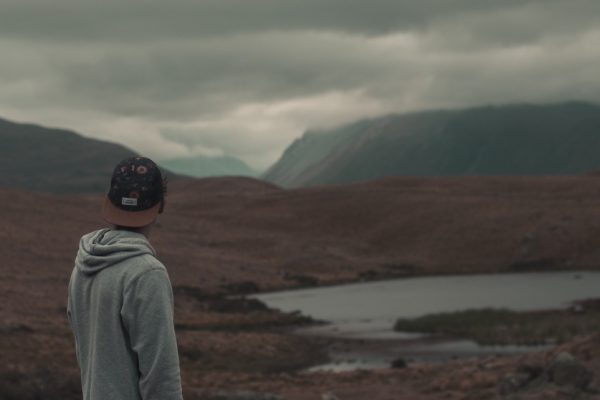Transcript: It has been three months since you left Egypt. The desert is dry and stubborn.
You and the other Israelites decide to rest and camp at the base of a mountain. You know there’s been some squabbling in the camp since you left Egypt about how to best proceed, but everyone wants the same thing in the end. Freedom from slavery and oppression. To live a life of sacred service. And a loving community to do it with. It sounds simple but you’re not quite sure how it will work out.
Your sister tells you Moshe has gone up the mountain to talk with God—she heard it from Miriam, his sister. You roll your eyes and sigh. You’ve been in the camp of Go, Go Go so we reach our destination—not the camp of, sit sit sit, so our leader can take up mountain climbing. You take a deep breath and remember that it was Moshe who negotiated with Pharaoh, it was Moshe who stood at the red sea as it split and you crossed through. You might not believe everything he says about God, but he has proven himself trustworthy. He has earned your trust and you’re willing to wait and see what happens.
You hear a commotion outside of your tent and you run to see what is going on–the elders are gathering to hear Moshe who has returned sooner than expected. The words echo through the camp—we are a holy nation, we are to be a nation of priests, all the earth is the Holy One’s.
You don’t know everything this entails but somewhere in your gut, this feels true. We are sacred. Our relationship with the Divine is distinct, and all the world is the Holy One’s realm—responsible for it all. The words come out of your mouth—na’aseh v’nishmah—we will do and we will understand. And you hear these words rippling through the mixed multitude around you, agreeing to be part of this project together, knowing that the more you do, the more you will understand. Doing will take you deeper.
Moshe continues—there are instructions about being pure for the third day. To wash your clothes. To not go near a woman? This piece sounds funny to you and you are not quite sure what to make of it. It sounds not quite as divine as the rest of the commands. So, you decide to focus on the clothes washing and spend the next few days scrubbing, and rinsing, and ringing. Your hands are red and raw. Your body aches from the physical labor, bent over and exhausted. One night passes. Still you scrub and ring and wash. You are committed to this divine command to wash. To be pure.
On the third day, as morning dawned, there was thunder, and lightning, and a dense cloud upon the mountain, and a very loud blast of the shofar; and you—and all the people who camp tremble with fear and awe. You want to run. To turn back. The thunder and lightning, centered around the mountain, are frightening. You remember the splitting of the sea when you left Egypt. You remember the ecstasy of liberation, and you remember the horrific death of the Egyptians who drowned in the sea after you? Who will die here? You want to run. You tremble. Your heart is racing.
Moshe appears in the front of the camp and urgest you all towards the mountain–but not to the point of touching it. The camp moves slowly, trembling towards the cloud—towards the mountain. A sound emerges from the mountain. It is silent. It is the ten commandments. It is the Torah. It is all the words that your people will ever say about matters of love, justice, and text. It is the words that only you as an individual can hear. It is words that only you as an individual can teach. It is Jewish law and custom and culture and language. You feel a presence of all the descendents of the people with you. All the people who will join the Jewish people. All the people who have ever been and ever will be, your people. They are here. They are it all. They are here. You are here. You see the silence. You hear the cloud. You taste the thunder. You smell the mountain. It is everything and it is nothing. You are still shaking. Do not kill. You tremble. Honor your parents. Your knees buckle. Do not seal. You collapse on the earth. Remember—keep—Shabbat and honor creation. You can barely move. Do not bear false witness. You are in awe. You are afraid. Finally it ends. Moshe declares, do not be afraid.
There is something new here. You do not understand. You do not know.
But you know. You have felt it.
You stand and stare.
It is over.
You weep.
 Rabbi Alex Weissman was ordained by the Reconstructionist Rabbinical College in 2017, where we studied Torah and served a range of communities including POWER, Avodah, Congregation Beit Simchat Torah, and JOIN for Justice. Alex currently serves as the Rabbinic Organizer at T’ruah: The Rabbinic Call for Human Rights and as the Rabbi at Congregation Agudas Achim in Attleboro, MA. Alex previously served as the Senior Jewish Educator at Brown RISD Hillel for three years and as a Community Care Chaplain with the Faith Matters Network. He serves on the Ethics Committee of the Reconstructionist Rabbinical Association and on the advisory boards of Evolve: Groundbreak Jewish Conversations and the Inside Out Wisdom and Action Project. Alex lives in Providence, RI with his partner, Adam.
Rabbi Alex Weissman was ordained by the Reconstructionist Rabbinical College in 2017, where we studied Torah and served a range of communities including POWER, Avodah, Congregation Beit Simchat Torah, and JOIN for Justice. Alex currently serves as the Rabbinic Organizer at T’ruah: The Rabbinic Call for Human Rights and as the Rabbi at Congregation Agudas Achim in Attleboro, MA. Alex previously served as the Senior Jewish Educator at Brown RISD Hillel for three years and as a Community Care Chaplain with the Faith Matters Network. He serves on the Ethics Committee of the Reconstructionist Rabbinical Association and on the advisory boards of Evolve: Groundbreak Jewish Conversations and the Inside Out Wisdom and Action Project. Alex lives in Providence, RI with his partner, Adam.











